Realme’s latest smartphones, the Realme 8s and 8i are now available for purchase in the Indian market at starting prices of Rs 17,999 and Rs 13,999 respectively. While the Realme 8i (review) is the more budget-focused device, I have my hands on the more expensive and mid-range Realme 8s. The phone is part of Realme’s 5G lineup of phones joining the Narzo 30 5G, Realme 8 5G, and the Realme X7 5G (review). All three phones are quite similar, but the 8s makes use of the new Dimensity 810 chipset. Apart from that, you are treated with the usual top-tier specs for the price mantra that Realme has been so good at delivering for the past couple of years. So how does the Realme 8s fare in real-life usage? Let’s try and find out in this full review.
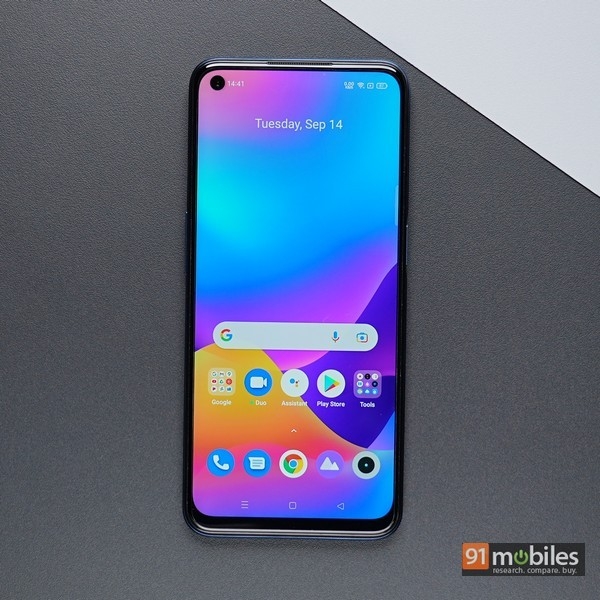
Verdict
The Realme 8s’ greatest strength lies in its powerful performance and rather good low-light image capturing capabilities. Its design is quite easy on the eyes, battery life is long and Realme has played it safe with the display. My points of contention revolve around mostly the absence of an ultra-wide sensor and lack of stereo speakers.
Design and display
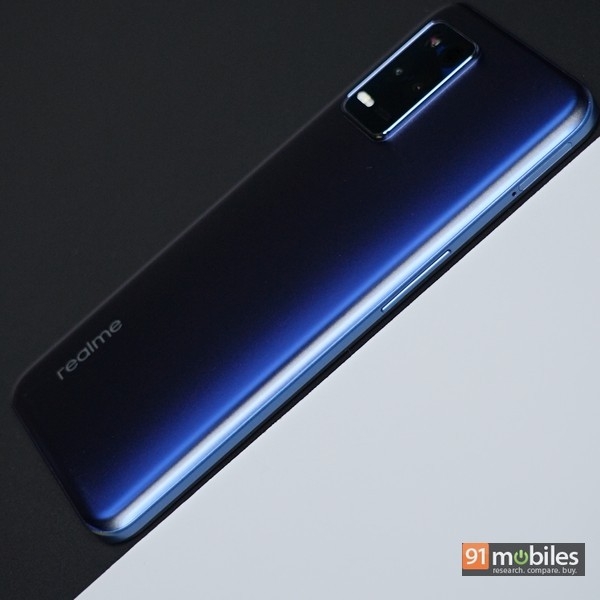
The Realme 8s builds on the original Realme 8 series, launched back in March, in terms of the physical design and materials used. The polycarbonate construction has been kept intact with a matte-like finish that I like, mostly since fingerprints and smudges become less of a problem. The weight of the device and the distribution of mass are evenly matched across the chassis, giving a balanced in-hand feel complimented by the slight curves around the edges. The cameras are encompassed in a familiar rectangular housing that consists of a triple-camera layout paired with an empty circular cutout that has the words AI embossed in it for aesthetic reasons. The rest of the phone is very much identical to its predecessors with the power button cum fingerprint sensor combo on the right, the USB C port at the bottom along with a speaker grille and a headphone jack, and the SIM card + microSD card tray on the left.
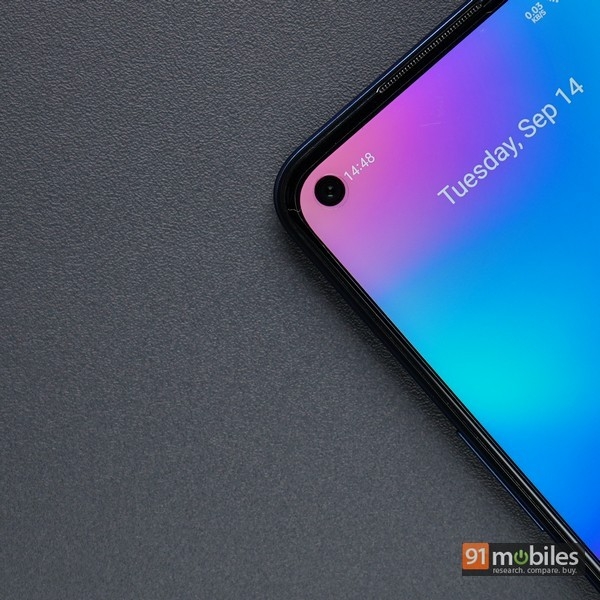
While the original Realme 8 (review) and 8 Pro had Super AMOLED panels, the company has reverted to an IPS LCD panel with an improved 90Hz refresh rate on the 8s. Interestingly, the cheaper Realme 8i actually comes with a 120Hz screen refresh rate. The resolution on the 8s is FHD+ with a punch-hole adorning the panel’s top and slim bezels surrounding the screen. There is no HDR10+ certification like you see on the competing Redmi Note 10 Pro lineup but you do get WideVine L1 support for HD content on OTT platforms. The screen is bright enough for outdoor usage and the panel’s calibration is suited more towards pumped-up colours that some find easy on the eyes. Touch latency and response times are reasonably good with a slight amount of ghosting prevalent while browsing at 90Hz owing to the screen’s LCD nature.
Cameras
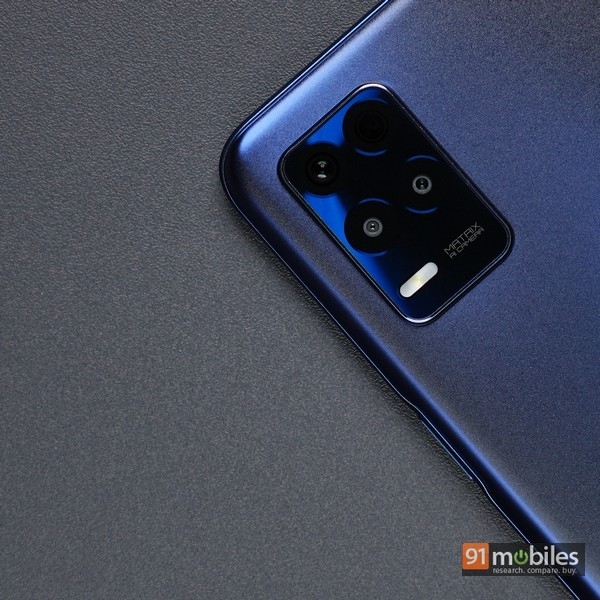
Camera-wise, the phone has a 64MP primary shooter identical to the one present on the original Realme 8, supported by a basic 2MP macro lens and a 2MP depth shooter. On the front is a 16MP selfie camera that is a standard issue on almost all Realme 8 series smartphones. Suffice it to say, there isn’t too much in the way of increment in camera quality. The Dimensity 810’s ISP (image signal processor) remains unchanged from the last iteration giving you the same slightly oversaturated, contrasty shots we’ve seen from Realme in the past. Dynamic range is good this time around, evident even in the current overcast weather conditions. One of the biggest improvements I found was in the phone’s low-light capabilities. The sensor size is not the largest in the segment but it still manages to get great exposure in minimal lighting. Shadows and highlights of the subject are quite prominent while the oversharpening of details remains minimal. The dedicated Night mode amplifies the colours which does rob the image of its natural tone, but is compensated by better detailing.
I would’ve preferred the inclusion of an ultra-wide sensor but instead, I have to contend with a low-res macro camera and a depth sensor whose job can be easily done by the primary shooter. The selfie camera is more or less the same as it has always been in recent Realme phones. Skin tones are slightly askew, oversharpened, and there is a nice background blur for portrait shots. The optics may have remained the same but I’m quite impressed with the Realme 8S’ low-light handling capabilities. The focusing speeds are exceedingly fast although the slightly delayed shutter speeds do make it hard to snap fast-moving objects.
Performance and software
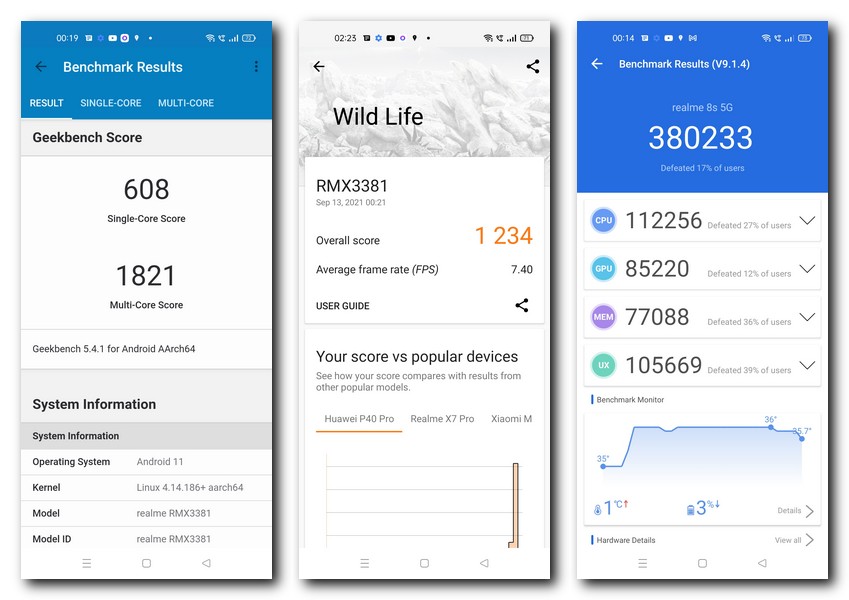
I have already gone to great lengths to detail the performance of the Realme 8s in a separate benchmarks comparison piece which you can read here. The basic conclusion I’m left to draw is that compared to the Dimensity 800u, seen on the Realme X7, the Realme 8s’ Dimensity 810 does show a small bump in processing power but falters in the graphics department. With respect to benchmark numbers, the Realme 8s is mostly ahead of its competition, only falling behind slightly when compared to the POCO X3 Pro. In terms of overall usage and the fluidity of the interface, I would say that it is on par with budget flagships. The entire experience is quite smooth, elegant, and designed in a way so as to maximise the utility of the chipset. The software skin has been stripped of jarring UI elements and is optimised for a faster, lag-free interface. Virtual RAM allotment increases the overall memory capacity from the device’s 6GB / 8GB to allow more applications to run in the background. App switching, browsing through heavy social media apps, switching between Chrome and the camera, operating two apps in split-screen and more can be accomplished smoothly. Even while running BGMI, which is a graphically demanding mobile game, I was getting a constant 45fps without so much as a hiccup after nearly 90 minutes of gaming.
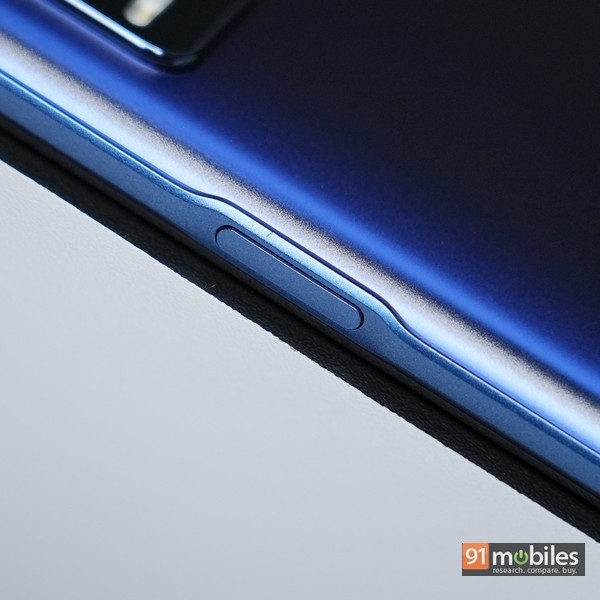
The fingerprint sensor works fine, but sometimes requires several taps to authenticate. The face unlock, however, is instantaneous even in low light. Stereo speakers would’ve been nice since the single bottom-firing one leaves me unimpressed. 5G is also one of the talking points about the device but its benefits are non-existent at the moment. In terms of software, the device runs RealmeUI v2.0 based on Android 11, and you can check out some details in our Realme 8i review for a better understanding. In summary, the interface ships with a ton of bloatware, has a lot of customisation capabilities, offers nifty little utilities tucked in the Realme Lab option and more.
Battery
Battery-wise the Realme 8s has a 5,000mAh cell powering the setup and is supported by 33W fast charging. The smaller fabrication of the Dimensity 810 chipset allows for better power efficiency which in turn translates to better battery life. With the refresh rate set at 90Hz, the phone was able to push through a day easily, ending it with nearly 40 percent battery left. Throw in some gaming for an hour or two and you might have to plug in your phone before you sleep at night. Even so, the fast charging allows you to power up from 0 – 100 percent in less than 90 minutes. It would be interesting to see how much juice is sapped from the battery once 5G comes into play.
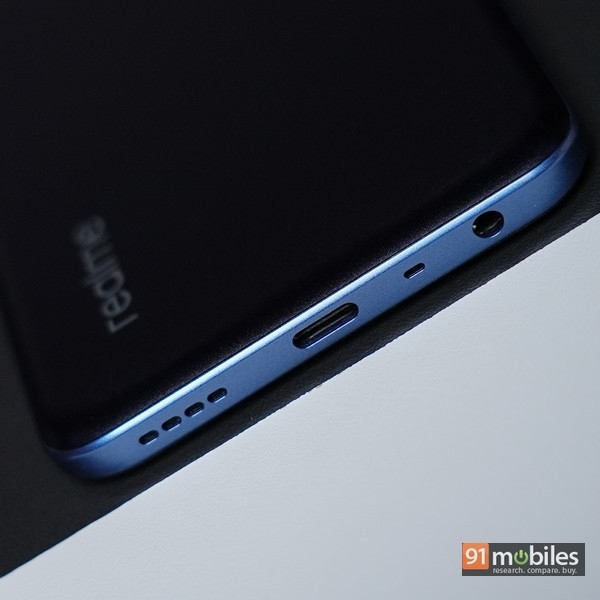
Final verdict
The Realme 8s proves to be an efficient, performance-oriented smartphone. The fact that it’s 5G-capable is an added bonus that customers will start to appreciate in due time, but immediately noticeable will be the excellent low-light photo capturing capabilities of the device. RAM and storage options are good for the starting price and the presence of virtual RAM and a separate microSD card slot is always a nice addition. The device exudes a great in-hand feel for its price and is well balanced in terms of design aesthetics. Some qualms I have with the phone are the absence of an ultra-wide lens, the rather mediocre macro shooter, and the lack of stereo speakers. If these look like deal-breakers to you, then perhaps the Redmi Note 10 Pro could suffice as an alternative. However, if it is good performance and nighttime photography you are after with 5G capability sprinkled on top, the Realme 8s is a reasonable choice.
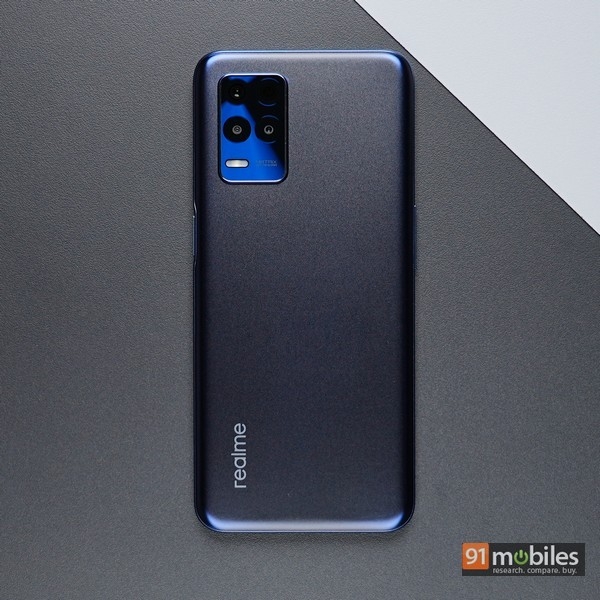
Editor’s rating: 3.5 / 5
Pros:
- Good performance
- Lasting battery life
- Excellent low light photo capabilities
Cons:
- Macro and depth sensors serve little purpose
- Could use stereo speakers
- Lots of bloatware
The post Realme 8s 5G review: plenty of performance first appeared on 91mobiles.com.
via ©91 Mobiles














No comments:
Post a Comment